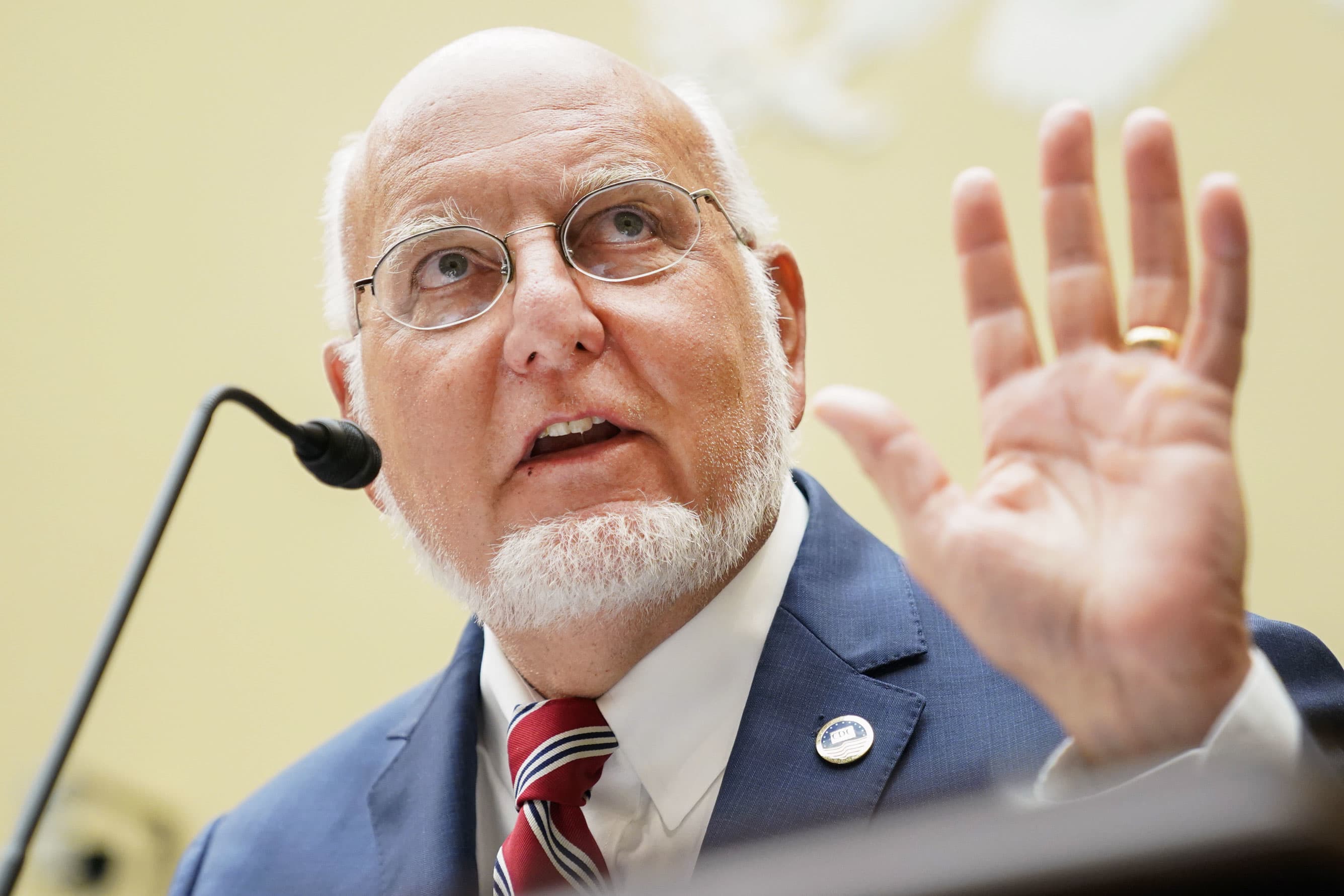
Whichever coronavirus vaccine candidates win regulatory approval in the U.S. will likely be in short supply once they are cleared for public distribution, Dr. Robert Redfield, director of the Centers for Disease Control and Prevention, said Friday.
The U.S. has so far invested more than $10 billion in six vaccine candidates through Operation Warp Speed, the Trump Administration's effort to accelerate the development, manufacturing, and distribution of vaccines and treatments to fight the coronavirus. The goal of the initiative is to provide 300 million doses of a safe and effective vaccine by January 2021. Drug manufacturers have made "hundreds of thousands" of doses for the U.S. so far, U.S. officials said Friday.
"At first, there will likely be a limited supply of one or more of the Covid-19 vaccines, because limited doses will be available," Redfield said on a conference call with reporters. "It's important that the early vaccines are distributed in a fair, ethical and transparent way."
Redfield said the CDC's Advisory Committee on Immunization Practices as well as other groups such as the National Academy of Sciences, Engineering and Medicine are working to develop recommendations on how to prioritize different populations when it comes to distribution of a vaccine.
In order to roll out a vaccine as quickly and to as many people as possible, the U.S. and drugmakers have been ramping up manufacturing before the vaccine's been authorized by the FDA. Paul Mango, deputy chief of staff for policy at the Department of Health and Human Services, said Friday that "manufacturing is already underway for three of our vaccines."
He added that a goal of Operation Warp Speed is to have tens of millions of vaccine doses authorized to be distributed before the end of the calendar year.
"We don't know exactly how many doses we're going to have. We don't know at what time, you're going to have those doses as we approach the end of the year," he said. "And we don't know yet in which subpopulations those vaccines are going to be efficacious."
Mango said some people have expressed concern about the vaccine supply chain, including needles, syringes, bottles and stoppers. But he added that "we feel we have the vast majority of our logistical needs already covered or on the way."
He added that some of the vaccines involved in Operation Warp Speed require two doses at varying intervals, while others, such as the Johnson & Johnson Covid-19 vaccine, require only one dose. That and other factors present logistical challenges for distributing a vaccine, Mango said.
It remains unclear which vaccine will first be the first to win emergency authorization from the Food and Drug Administration. Two candidates, one by Moderna and another being produced in a joint venture by Pfizer and BioNTech, are currently in late-stage human trials. Both trials seek to test the vaccine on 30,000 people.
Mango said at least 15,000 people have been enrolled in each trial. He also said that two more vaccine candidates are expected to enter phase three trials by mid-September. Johnson & Johnson previously announced plans to begin its phase three trial in September with up to 60,000 participants.
The CDC on Wednesday proposed guidelines for distributing a coronavirus vaccine in the U.S. if and when one is authorized. Those guidelines propose "groups for early phase vaccination" to include health-care workers, essential personnel and vulnerable Americans, such as the elderly and those with underlying health conditions.
That includes all people working in health-care settings, such as hospitals, long-term care facilities, home-based care, outpatient centers and pharmacies, according to the CDC's guidelines. The agency estimates there are between 17 million and 20 million health-care workers in the U.S.
Essential personnel, which the CDC estimates to be 60 million to 80 million people, working in food and agriculture, transportation, education, energy, wastewater and law enforcement would also be prioritized according to the proposal.
About 100 million people with medical conditions and 53 million people over the age of 65 would get a vaccine, according to the proposal, which acknowledges there is some overlap between these populations.
Mango added that once a vaccine has been distributed, federal health officials will continue to continue "tracking everyone who gets it for potential side effects." He said long-term side effects may emerge "weeks or months" after people have been immunized.
"The vaccine could be pulled from the market if the data suggests something that is adverse there," he said.
The CDC's Redfield added that once a vaccine does prove safe and effective and receives authorization, it complicates the design of other Covid-19 vaccine clinical trials going forward.
"Vaccines will most likely have to be comparing their ability to work to the vaccine that you approved," he said. "So no longer would you likely have people enroll in a trial where they got placebo versus a new vaccine. Typically what would happen is they would enroll in a trial where they got ... the old vaccine versus the new vaccine."
— CNBC's Berkeley Lovelace Jr. and Noah Higgins-Dunn contributed to this report.
Top stories - Google News
August 28, 2020 at 12:51PM
https://ift.tt/3lqU7e9
CDC director says there will likely be a limited supply of coronavirus vaccines at first - CNBC
Top stories - Google News
https://ift.tt/2FLTecc
Shoes Man Tutorial
Pos News Update
Meme Update
Korean Entertainment News
Japan News Update
Bagikan Berita Ini














0 Response to "CDC director says there will likely be a limited supply of coronavirus vaccines at first - CNBC"
Post a Comment